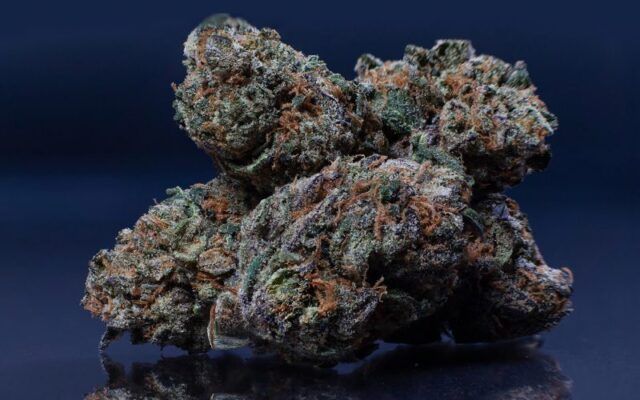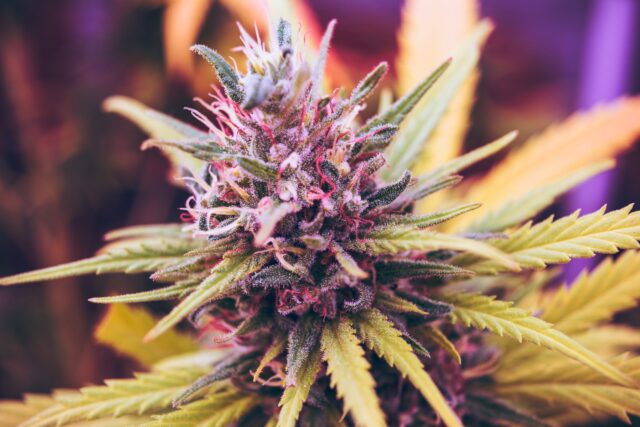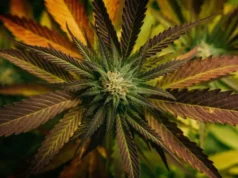
Millions of people suffer from chronic panic worldwide. There is a wide range of treatment plans for chronic pains. You can choose from over-the-counter drugs and prescription medications. Mind-body techniques, chiropractic massage, or acupuncture can also relieve pain. However, no single treatment plan can guarantee complete pain relief for chronic pain patients. Some may even come with undesirable side effects.
Most people employ different treatment plans to find the best one for them. But, a promising natural alternative has been gaining popularity in recent years – THCA flower. The THCA hemp flower is a raw cannabis flower containing high tetrahydrocannabolic acid (THCA) levels. It offers therapeutic potentials that can provide relief for people looking to manage chronic pain.
In this article, we will explore the benefits of THCA flowers and how you can use them for chronic pain management.

Understanding the THCA Flower
The THCA flower is the raw, unprocessed flower of the cannabis plant. It is specially cultivated to contain high levels of THCA. The plant is harvested early while the trichomes are still clear to milky in colour to ensure a higher concentration of THCA and other beneficial compounds. Harvesting early also prevents decarboxylation, which converts THCA to THC, its psychoactive counterpart.
THCA is one of the hundreds of cannabinoids in the cannabis plant. It modulates the endocannabinoid system to provide therapeutic benefits that can be helpful to a wide range of body conditions. It offers similar health benefits to THC. However, it does not bind strongly to the CB1 and CB2 receptors due to the shape of the molecules.
The Benefits of THCA Flower for Chronic Pain Management
Chronic pain refers to any pain that lasts longer than three months. It occurs in different forms and happens due to various health conditions. Common types of chronic pains include arthritis, neck pain, back pain, testicular pain, migraines, and neurogenic pains. Chronic pain can significantly impact the quality of human life. The Centers for Disease Control and Prevention reports that over 51.6 million adults suffer chronic pain.
The potential benefits of THCA flower for chronic pain management lie in its interaction with the endocannabinoid system. This reduces the perception of pain to cause the person to feel less pain. It also induces the production of dopamine and serotonin to influence mood and pain perception. The combined effect alleviates pain and provides relief for chronic pain.
Here are some causes of chronic pain and how THCA can help the person manage the pain that comes with them.

Injury or trauma
Chronic pain can happen due to injury or trauma that has not fully healed. When an injury occurs, the body provides an immune response. It releases inflammatory chemicals to the affected areas. This includes injuries such as fractures, sprains, or muscle strains. THCA can reduce the body’s natural immune response and modulate pain signals to cause less pain. THCA has been found to interact with the endocannabinoid system (ECS), which plays a crucial role in regulating pain and inflammation. By activating certain receptors in the ECS, THCA can help reduce chronic pain and alleviate associated symptoms, such as fatigue and anxiety.
THCA may also be beneficial for chronic pain management because it does not have psychoactive effects like THC, making it a safe alternative for patients who cannot tolerate or prefer to avoid the mind-altering effects of THC.
Inflammatory Conditions
Inflammatory conditions such as arthritis and lupus can cause chronic pain. This happens due to inflammation of the joints and muscles. A 2017 study has shown that THCA prevents the formation of cytokines that contribute to inflammation in the body. This helps to relieve chronic pain at the points of inflammation. THCA has been found to have neuroprotective properties, which can be beneficial for those suffering from inflammatory conditions that affect the nervous system, such as multiple sclerosis. THCA has also shown potential as an antiemetic, making it a possible treatment for nausea and vomiting associated with certain inflammatory conditions and their medications. Further research is needed to fully understand the therapeutic potential of THCA for inflammatory conditions, but the early results are promising.

Muscle Spasms
THCA has potential benefits for chronic pains caused by muscle spasms. The effect of the endocannabinoid system reduces inflammatory responses that trigger muscle spasms. This helps the body to relax and subsequently alleviates chronic pain. Moreover, THCA also exhibits antispasmodic properties that can help to ease muscle contractions, making it a promising natural treatment option for individuals suffering from muscle spasms. Its muscle-relaxing properties may provide relief to patients with conditions such as multiple sclerosis, cerebral palsy, and spinal cord injuries.
Psychological factors
Stress, anxiety, and depression can contribute to or exacerbate chronic pain. THCA can help the user to regulate mood and emotional response. It can also alleviate anxiety and depression symptoms.

Chronic illness
THCA can relieve chronic pains caused by cancer, HIV/AIDS, or sickle cell anaemia. It will help manage these conditions’ symptoms to make the patients feel better. Moreover, THCA has shown promise in treating other chronic illnesses such as multiple sclerosis, Crohn’s disease, and epilepsy. Studies suggest that THCA can reduce inflammation, spasticity, and seizures in these conditions, providing much-needed relief to patients. THCA’s potential as a neuroprotective and antioxidant also makes it a promising therapy for neurodegenerative diseases like Parkinson’s and Alzheimer’s. Overall, THCA’s medicinal benefits make it a valuable addition to the arsenal of treatments available to patients with chronic illnesses.
How to Use THCA Flower for Chronic Pain Management
If you want to use THCA flower for chronic pain management, here are a few things to consider. For starters, you should always get your THCA flowers from reputable manufacturers. Ensure it is free from pesticides and other harmful chemicals.
You also need to consider the consumption method. Smoking and vaping are fast-acting but come with the traditional cannabis high. Suppose you do not want the intoxicating experience. In that case, We recommend juicing the flower, adding it to your meals, or using it as tinctures.









